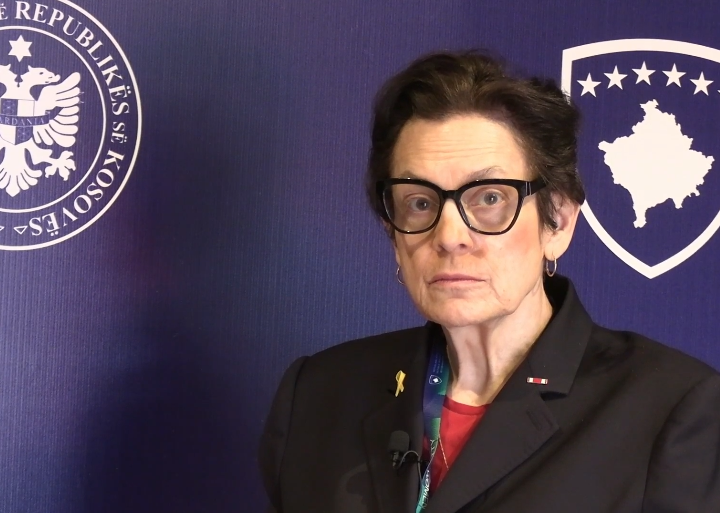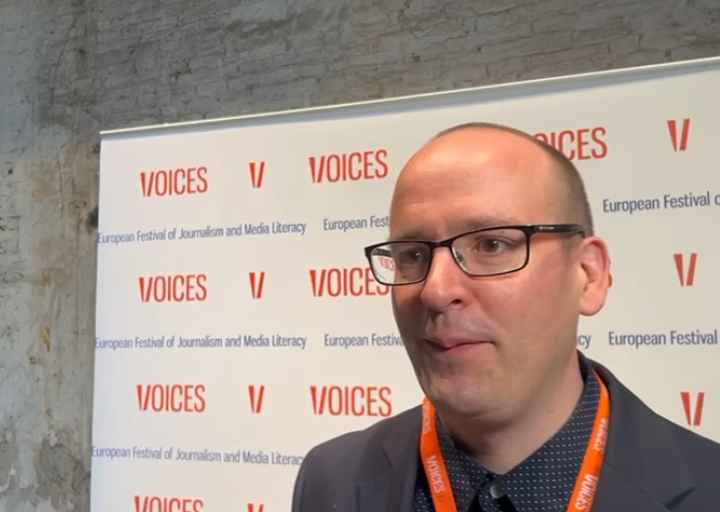
Since the Russian invasion of Ukraine, Georgia has become more of a secondary target when it comes to information warfare and unconventional operations, says American journalist in the country Michael Godwin.
In an interview with The Geopost, Godwin points out that after the imposition of Western economic sanctions against the Kremlin, many Russians have moved to Georgia.
“Russia has had an interest in this area for probably centuries, but the closest we’ve been looking at it is in the last few years and especially, since the Russian invasion of Ukraine, Georgia has become more of a secondary target when it comes to the war on information and unconventional or clandestine operations,” Godwin points out.
“Obviously with the sanctions and people being more unhappy with the actions of the Kremlin, especially with Ukraine, we’ve seen thousands of people moving to Georgia, thousands of bank accounts, business licenses, everything opening up here, which is good,” he adds. .
According to him, the movement of the Russians in this country, they can now be seen by the Kremlin as dissidents or oppositionists.
“You have to imagine that most of the Russians who are coming to Georgia, who are coming here to leave, are probably already seen by the Russian government as dissidents or dissidents, which of course are automatically targeted, so basically this it’s something we’ve seen in terms of the impact that’s come to Georgia in the last six months,” says Godwin.
Speaking about Russian propaganda and disinformation in Georgia, the freelance journalist said that the Kremlin’s tactics are not always the same, and that is why the US Embassy in this country is offering awareness programs.
“The U.S. Embassy here has a very good program that they’ve been pushing with their Georgian partners, both in the private and public sectors, to educate people, whether it’s just pamphlets, training, awareness programs for the media, it is an ongoing program, it will be something that I think needs to be constantly changed, because as we all know, the Kremlin does not play the same tactic over and over,” he said.
In this interview, Godwin also talked about Russian propaganda in the Balkans, especially how Serbia is using it against Kosovo.
“I’m not saying that Kosovo’s media should be questioned all the time, it’s the old phrase that if it seems unusual, it probably is and you should take a look. Do your research, I know for people like you and me, and I know you and a lot of journalists, that’s our job, the research, the verification of the research to make sure we have everything right,” concludes Godwin. /The Geopost/
Full interview
The Geopost: Can you tell us about Russian influence in the Republic of Georgia and in the region?
In Georgia, just geographically being bordering Russia, obviously we have a history with Russia in the past 10 or 20 years and being a core interest in the south Caucasus, both with Azerbaijan for oil and gas, but also, probably one of the only non-major powers outside of Turkey, Russia and the eastern Black Sea area that has key ports, very important strategic locations in the region.
So, Russia had an interest in the area for probably centuries but more closely where we are looking at is in the past few years and particularly since the Russian invasion of Ukraine, Georgia has become more of a secondary target when it comes to information warfare and unconventional or clandestine operations. With Russian influence we see a lot of Russian influences in media, certainly not all, but some and certain publications, certain media outlets, news agencies do have significant backing or paper-trail that do go back to Russia, whether they are owned by Russian companies, Russian media firms or they are just funded or given grants by Russian entities. A lot of that shapes the narrative that they propagate. One of the key things that we’ve seen a lot with Russian influence, and this is more fact than anything else is the influence of people coming from Russia that are not coming for, let’s say, better opportunities.
Obviously with the sanctions and people being unhappier with the Kremlin actions, particularly with Ukraine, we’ve seen thousands of people move to Georgia, thousands of bank accounts, business licenses, everything being opened up here, which is fine, and like I said, majority of those are people wanting to get away from the negativity effects of their government, but what is already being seen and I have written about this as well is that not all those people coming across the border are a civilians, in the definition that they are agents working for the Kremlin.
But, also people that have come out and said, look I was attempted to be recruited by the FSB, GRU, Russian government, do not only keep tabs on Georgians and Georgian activities in Georgia and sociopolitical landscape here, but also other Russians what are doing.
You got to imagine most of the Russians that are coming to Georgia, who are coming here to get away are probably already seen by the Russian government as dissidents or opposition, which of course they are targeted automatically, so that is something we’ve seen as far as the influence coming into Georgia in past six months essentially.
The Geopost: What is the strategy of Georgia and the media to protect itself from disinformation and propaganda coming from Russia?
Right now one of the big issues that’s in the process of being dealt with now, and I think both, people in the government and the people I personally know working inside the government, it’s a complex puzzle because you have to balance couple of things, obviously you need to balance the very important democratic hallmark of free speech. There is no need to censor or outright ban anything, but there does need to be a check put on things where we are not necessarily pushing out false information, that can be considered either harmful or even counterintuitive to democratic structure, of course the goals of the Georgian government and Georgian people.
So, I think one of the key things is getting at the root with education. One of the things I talked to some of the people, both politicians and staff people that work in government and the first push is education, getting people to identify misinformation.
Of course, the first problem like with everything, the first key part of solving the problem is to first identify what the problem is, which is helping people identify what is misinformation or disinformation, how to identify whether something is coming reputable source. Obviously we have our mainstream Georgian media, but every now and then you do see some of these small outlets come up and you need to be able to identify are these new legitimate, maybe there are “Gresford” journalism which is important to have, but maybe these are also “pop-ups” that are kind of ad hook created by an outside force for not so beneficial uses, so education and training, to be able to be familiar with what that is, how to identify it, and if it is something that does become a problem a recurring problem, how to report that, and how the government is going to respond to it if they have a legitimate misinformation source that is constantly pushing this out. Again, that is on legislative side, legal side, how do you tackle something like that without essentially walking on someone’s rights, and that’s a very fine line.
I know for a fact, the US Embassy here, you mentioned that earlier, the US Embassy in Georgia has a very good program that they have been pushing out with their Georgian partners, both in the private and public sector, to get people educated on that, whether there are just through pamphlets, trainings, media awareness programs, it’s an ongoing program, it’s going to be something that I think is constantly have to change because as we all know, the Kremlin does not play the same tactic over and over, they constantly change it like cat and mouse game, so it will be something to watch out for and I think it’s just going to be something that government is just going to be has to constantly update and be aware of.
The Geopost: Russia uses Serbia and most of media in Serbia is using Russian propaganda, do you have any message for Kosovo or for the Balkan states?
One thing I always say, I say the same thing to my friends, whether it’s in Europe, United States, here in Georgia and I would say the same thing to people there is, it’s better to question and confirm than outright believe something at its face. I am not saying that Kosovo media should be questioned at all times, it’s the old phrase that if it seems out of the ordinary, it most likely is and you should take a look at it. Do your own research, I know for people like you and me and I know you and lot of journalists, that’s our job, research, research verification to make sure we have everything straight.
For the everyday person that is not what they do, they have jobs, they have families they have other priorities. But make sure that the things that you are seeing never take everything from one source, try to get other opinions, try to get other viewpoints and if two opinions or two stories on one event seem quite opposite, the truth is often somewhere on the middle, so I would say the same thing, take a good look at everything you see, be careful about believing something that is little bit shocking at first, a shocking news or kind of that effect is a tactic that is used by misinformation, because that’s what grabs you and gets your attention the most versus something that is little bit more a gossip. /The Geopost/

 Vuletić for Geopost: Serbia has political scoundrels on both sides, partners in the West see that clearly
Vuletić for Geopost: Serbia has political scoundrels on both sides, partners in the West see that clearly  Spahovic for The Geopost: We cannot expect a pro-European government from Vucic, Milosevic’s ideas are still alive
Spahovic for The Geopost: We cannot expect a pro-European government from Vucic, Milosevic’s ideas are still alive  Lindberg: Russia jams GPS, uses Belarus and Wagner in hybrid warfare
Lindberg: Russia jams GPS, uses Belarus and Wagner in hybrid warfare  Tanya Domi: The West is soft with Vučić, Serbia is working against American interests in the Balkans
Tanya Domi: The West is soft with Vučić, Serbia is working against American interests in the Balkans  Kivimaki: Artificial information should be feared – disinformation should be combated by open source
Kivimaki: Artificial information should be feared – disinformation should be combated by open source  Bowler: Russia distorts everything for its own interests
Bowler: Russia distorts everything for its own interests